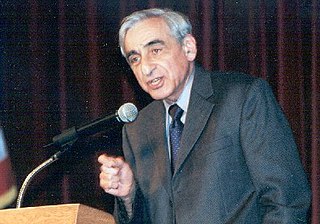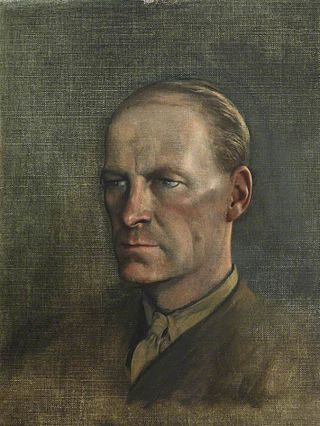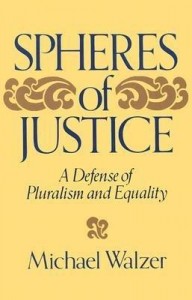
Justice, in its broadest sense, is the concept that individuals are to be treated in a manner that is equitable and fair.

Philosophy of law is a branch of philosophy that examines the nature of law and law's relationship to other systems of norms, especially ethics and political philosophy. It asks questions like "What is law?", "What are the criteria for legal validity?", and "What is the relationship between law and morality?" Philosophy of law and jurisprudence are often used interchangeably, though jurisprudence sometimes encompasses forms of reasoning that fit into economics or sociology.

John Bordley Rawls was a moral, legal and political philosopher in the modern liberal tradition. Rawls has been described as one of the most influential political philosophers of the 20th century.
Analytic philosophy is a broad, contemporary movement or tradition within Western philosophy and especially anglophone philosophy focused on analysis.

The just war theory is a doctrine, also referred to as a tradition, of military ethics that aims to ensure that a war is morally justifiable through a series of criteria, all of which must be met for a war to be considered just. It has been studied by military leaders, theologians, ethicists and policymakers. The criteria are split into two groups: jus ad bellum and jus in bello. The first group of criteria concerns the morality of going to war, and the second group of criteria concerns the moral conduct within war. There have been calls for the inclusion of a third category of just war theory dealing with the morality of post-war settlement and reconstruction. The just war theory postulates the belief that war, while it is terrible but less so with the right conduct, is not always the worst option. Important responsibilities, undesirable outcomes, or preventable atrocities may justify war. The concept of a just war broadly stands in contrast with that of a war of aggression.

Michael Laban Walzer is an American political theorist and public intellectual. A professor emeritus at the Institute for Advanced Study (IAS) in Princeton, New Jersey, he is editor emeritus of Dissent, an intellectual magazine that he has been affiliated with since his years as an undergraduate at Brandeis University. He has written books and essays on a wide range of topics—many in political ethics—including just and unjust wars, nationalism, ethnicity, Zionism, economic justice, social criticism, radicalism, tolerance, and political obligation. He is also a contributing editor to The New Republic. To date, he has written 27 books and published over 300 articles, essays, and book reviews in Dissent, The New Republic, The New York Review of Books, The New Yorker, The New York Times, Harpers, and many philosophical and political science journals.

William Kymlicka is a Canadian political philosopher best known for his work on multiculturalism and animal ethics. He is currently Professor of Philosophy and Canada Research Chair in Political Philosophy at Queen's University at Kingston, and Recurrent Visiting professor in the Nationalism Studies program at the Central European University in Budapest, Hungary. For over 20 years, he has lived a vegan lifestyle, and he is married to the Canadian author and animal rights activist Sue Donaldson.

Gilbert Ryle was a British philosopher, principally known for his critique of Cartesian dualism, for which he coined the phrase "ghost in the machine." He was a representative of the generation of British ordinary language philosophers who shared Ludwig Wittgenstein's approach to philosophical problems.

Republic is a Socratic dialogue, authored by Plato around 375 BC, concerning justice, the order and character of the just city-state, and the just man. It is Plato's best-known work, and one of the world's most influential works of philosophy and political theory, both intellectually and historically.

Global justice is an issue in political philosophy arising from the concern about unfairness. It is sometimes understood as a form of internationalism.
Susan Moller Okin was a liberal feminist political philosopher and author.

Spheres of Justice: A Defense of Pluralism and Equality is a 1983 book by the philosopher Michael Walzer.
Jefferson Allen McMahan is an American moral philosopher. He has been Sekyra and White's Professor of Moral Philosophy at the University of Oxford since 2014.
The philosophy of film is a branch of aesthetics within the discipline of philosophy that seeks to understand the most basic questions about film. Philosophy of film has significant overlap with film theory, a branch of film studies.

Liberalism and the Limits of Justice is a book about liberalism by the philosopher Michael Sandel. The work helped start the liberalism-communitarianism debate that dominated Anglo-American political philosophy in the 1980s.

Interpretation and Social Criticism is a 1987 book about political philosophy by Michael Walzer.
Sue Donaldson is a Canadian writer and philosopher. She is a research fellow affiliated with the Department of Philosophy at Queen's University, where she is the co-founder of the Animals in Philosophy, Politics, Law and Ethics (APPLE) research cluster.
John Hadley is an Australian philosopher whose research concerns moral and political philosophy, including animal ethics, environmental ethics, and metaethics. He is currently a senior lecturer in philosophy in the School of Humanities and Communication Arts at Western Sydney University. He has previously taught at Charles Sturt University and the University of Sydney, where he studied as an undergraduate and doctoral candidate. In addition to a variety of articles in peer-reviewed journals and edited collections, he is the author of the 2015 monograph Animal Property Rights and the 2019 monograph Animal Neopragmatism. He is also the co-editor, with Elisa Aaltola, of the 2015 collection Animal Ethics and Philosophy.
In just war theory, a supreme emergency is a situation where a state faces an existential threat from an agressor, which scholars like Michael Walzer and John Rawls argue justifies otherwise unjust action.

The moral equality of combatants (MEC) or moral equality of soldiers is the principle that soldiers fighting on both sides of a war are equally honorable, unless they commit war crimes, regardless of whether they fight for a just cause. MEC is a key element underpinning international humanitarian law (IHL)—which applies the rules of war equally to both sides—and traditional just war theory. According to philosopher Henrik Syse, MEC presents a serious quandary because "it makes as little practical sense to ascribe blame to individual soldiers for the cause of the war in which they fight as it makes theoretical sense to hold the fighters on the two sides to be fully morally equal". The moral equality of combatants has been cited in relation to the Israeli–Palestinian conflict or the U.S.-led wars in Iraq and Afghanistan.













